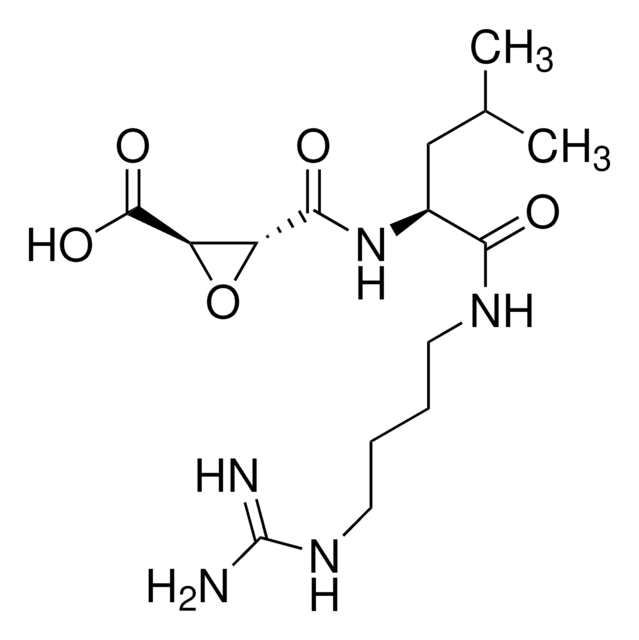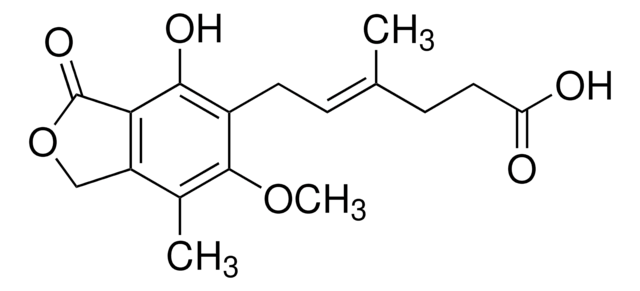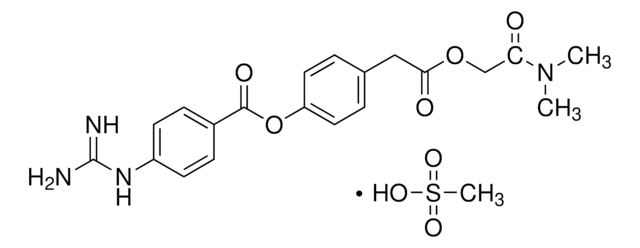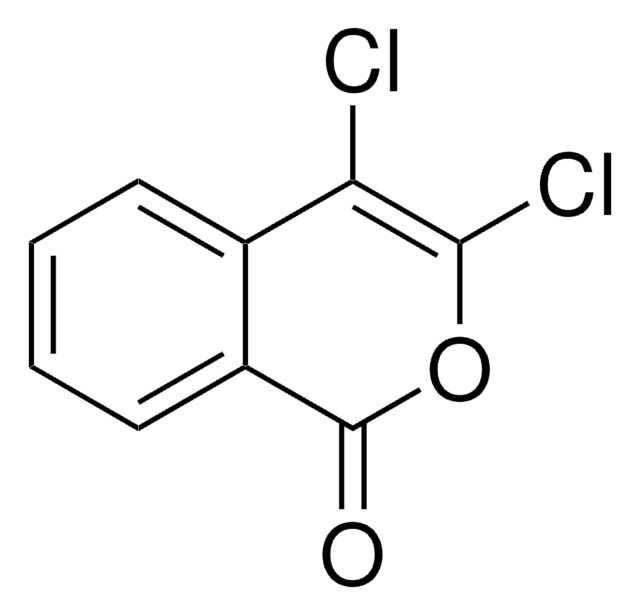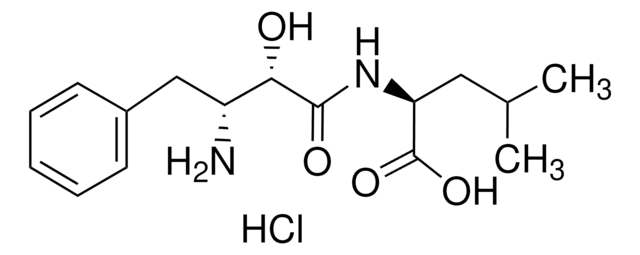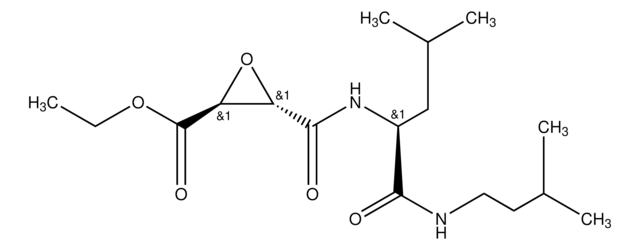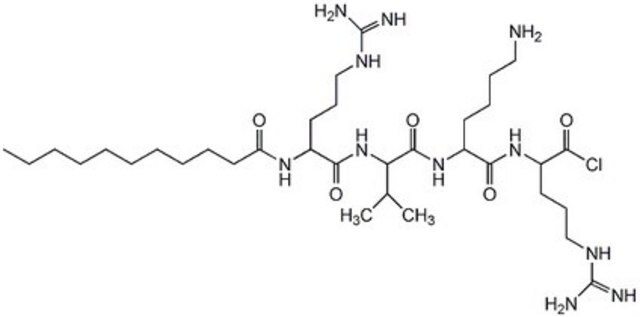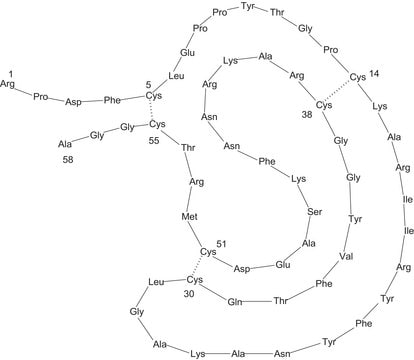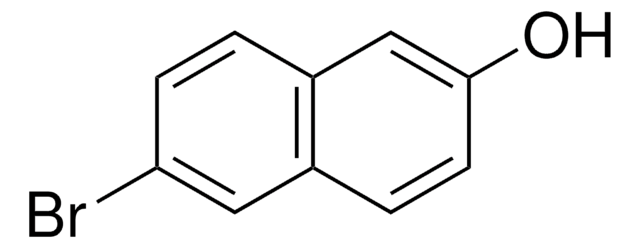N0289
Nafamostat mesylate
≥98% (HPLC), powder, serine protease inhibitor
Synonym(s):
4-[(Aminoiminomethyl)amino]benzoic acid 6-(aminoiminomethyl)-2-naphthalenyl ester dimethanesulfonate, FUT-175
About This Item
Recommended Products
product name
Nafamostat mesylate, ≥98% (HPLC)
Assay
≥98% (HPLC)
form
powder
color
white to beige
solubility
DMSO: 10 mg/mL, clear
H2O: >10 mg/mL
storage temp.
room temp
SMILES string
CS(O)(=O)=O.CS(O)(=O)=O.NC(=N)Nc1ccc(cc1)C(=O)Oc2ccc3cc(ccc3c2)C(N)=N
InChI
1S/C19H17N5O2.2CH4O3S/c20-17(21)14-2-1-13-10-16(8-5-12(13)9-14)26-18(25)11-3-6-15(7-4-11)24-19(22)23;2*1-5(2,3)4/h1-10H,(H3,20,21)(H4,22,23,24);2*1H3,(H,2,3,4)
InChI key
SRXKIZXIRHMPFW-UHFFFAOYSA-N
Application
- as a serine protease inhibitor to study its effects on proteolytic degradation of therapeutic proteins recombinantly expressed in Chinese hamster ovary (CHO)-K1-derived cells
- to stop complement activation to validate the assay for murine C3 fragments
- as a serine protease inhibitor to study its effects on house dust mite extract evoked Ca2+ entry
Biochem/physiol Actions
Signal Word
Warning
Hazard Statements
Precautionary Statements
Hazard Classifications
Repr. 2
Storage Class Code
11 - Combustible Solids
WGK
WGK 3
Flash Point(F)
Not applicable
Flash Point(C)
Not applicable
Personal Protective Equipment
Certificates of Analysis (COA)
Search for Certificates of Analysis (COA) by entering the products Lot/Batch Number. Lot and Batch Numbers can be found on a product’s label following the words ‘Lot’ or ‘Batch’.
Already Own This Product?
Find documentation for the products that you have recently purchased in the Document Library.
Customers Also Viewed
Our team of scientists has experience in all areas of research including Life Science, Material Science, Chemical Synthesis, Chromatography, Analytical and many others.
Contact Technical Service